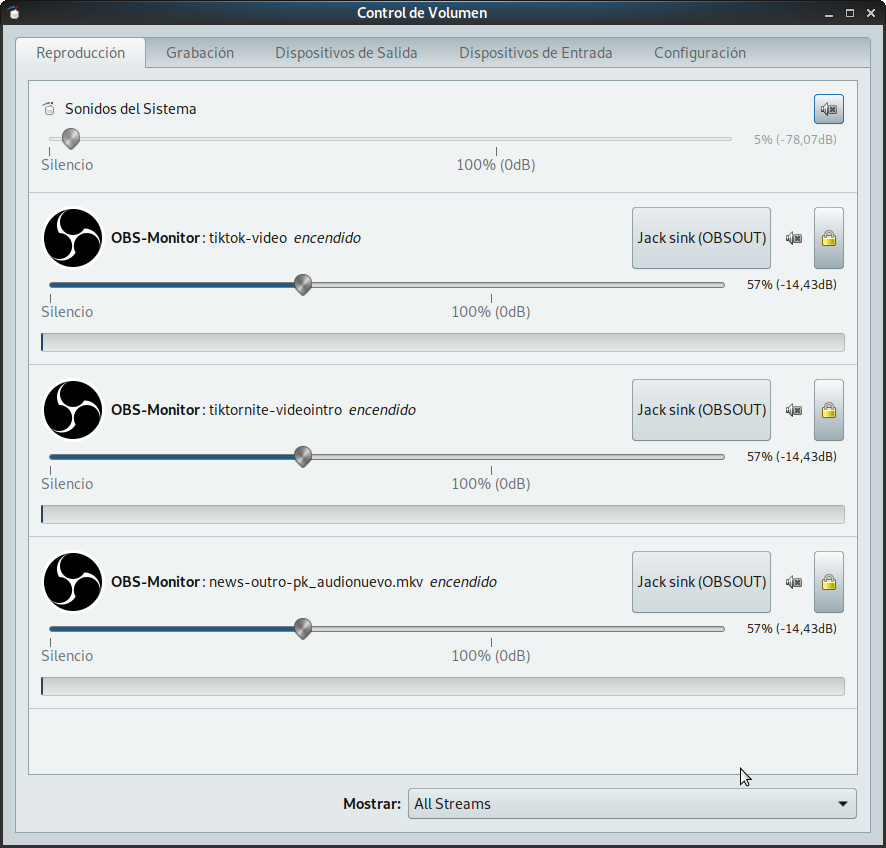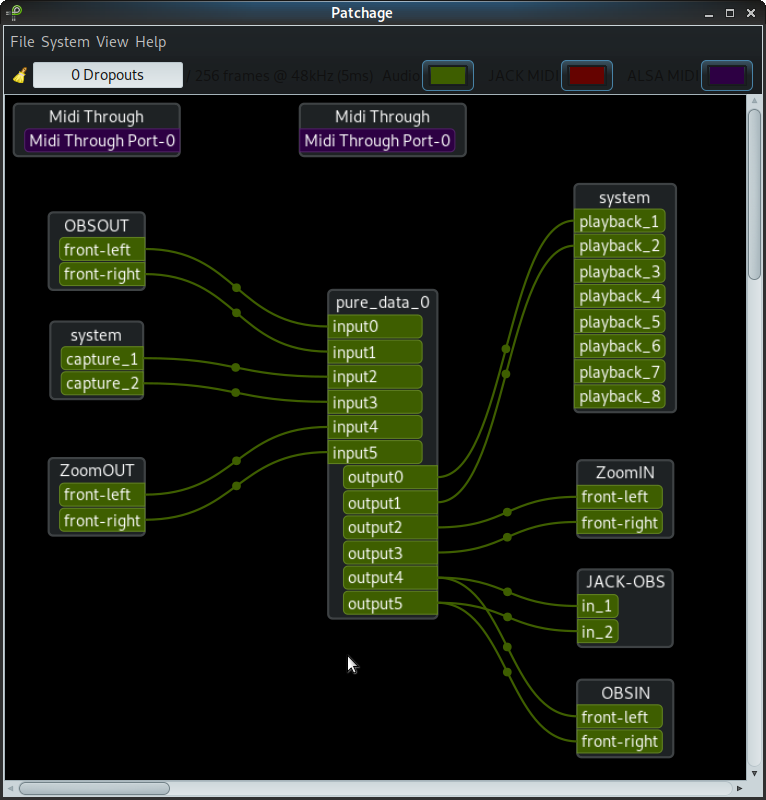The only built-in method (besides local streaming) seems to be the monitors:
I set up an extra pulse-audio sink with load-module module-null-sink sink_name=OBS sink_properties=device.description="OBS" (in config or manually with pacmd). Then, in obs, I select "Monitor of OBS" as the monitoring device in preferences and activate "output+monitor" for the audio sources in obs that I want to hear somewhere else. Now, using pavucontrol or whatever mixer you prefer, set the record stream of your browser (running the video conference) to record from OBS instead of your microphone. (Personally, I remove all audio devices from obs settings and add them by scene, but the monitoring device is still in obs settings.)
If "OBS the app" vs. "OBS the sink" is confusing then better name the sink differently, such as "OBSmic" or such :-)
This works nicely (filters apply and such) with one known caveat: scene transitions do not fade the audio on the monitor, only on record+stream output. All other niceties seem to work, even ducking.
 1280x720 was so big, 640x360 was a little small... so, I tried resolution close to 800x450 that has no color glitchs... so, I achieve it with this weird resolution. This could be a bug... I might report it.
1280x720 was so big, 640x360 was a little small... so, I tried resolution close to 800x450 that has no color glitchs... so, I achieve it with this weird resolution. This could be a bug... I might report it.










Hello, I am using Ubuntu Linux, and am currently using the v4l2sink mod as a workaround to use OBS with my web-based video conferencing software, since it does NOT have a server for accepting SRT/RTMP/FTL streaming.
Is it possible to create a virtual microphone device, and have OBS output to the virtual microphone device? I have been searching for hours on the web for a solution!
Thanks!!!